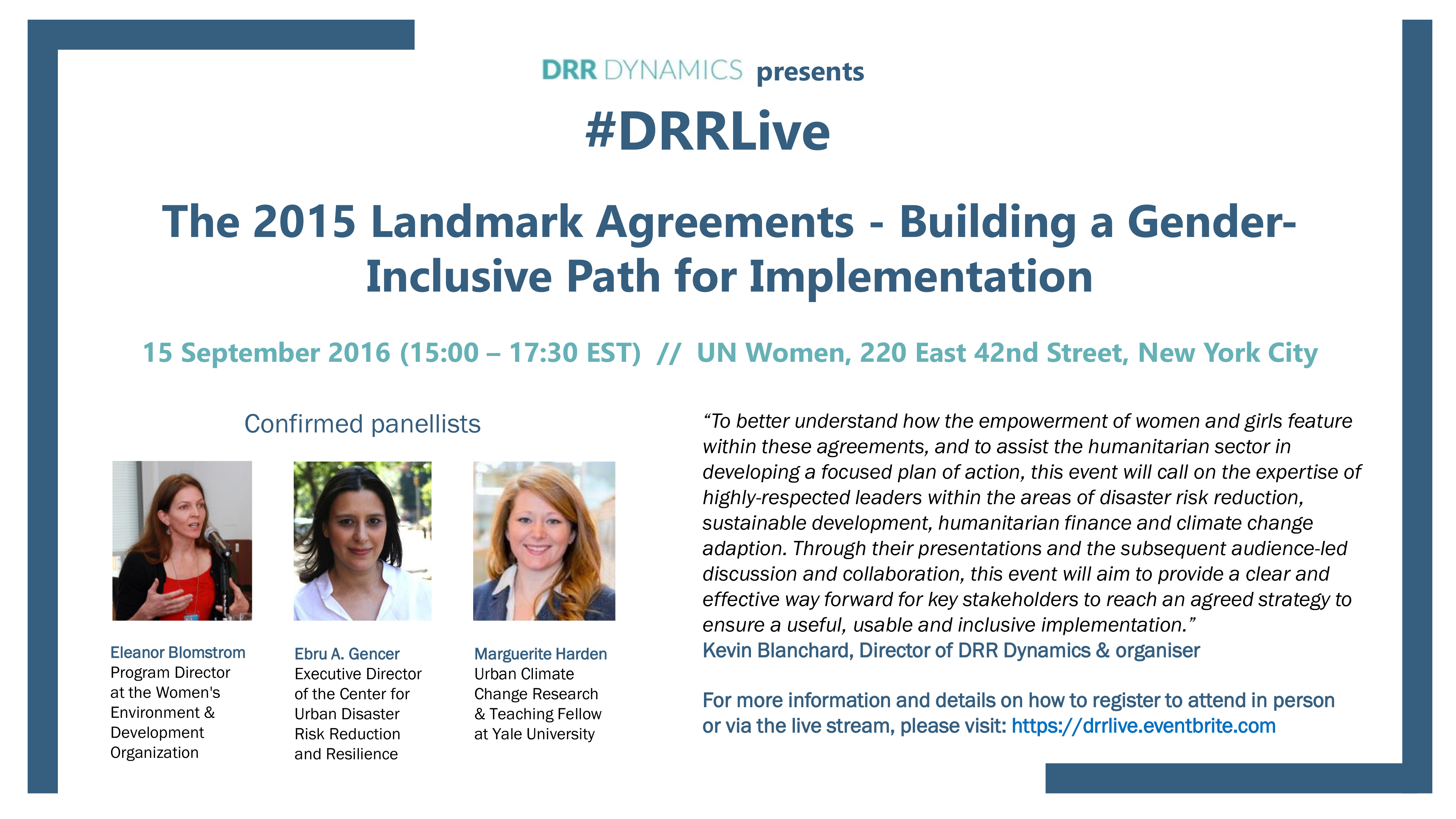Ebru Gencer was a panelist for the DRRLive Conference: The 2015 Landmark Agreements - Building a Gender-Inclusive Path for Implementation that took place at UN Women on September 15,…


Ebru Gencer was a panelist for the DRRLive Conference: The 2015 Landmark Agreements - Building a Gender-Inclusive Path for Implementation that took place at UN Women on September 15,…